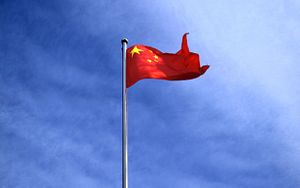Few issues would bring the former leader of Britain’s Conservative Party Iain Duncan Smith together with leading Labor peer and human rights lawyer Baroness Helena Kennedy – or, in the febrile partisan politics of the United States at the moment, Republican Senator Marco Rubio together with Democrat Senator Robert Menendez. To see Reinhard Butikofer, a long-standing German Green Party Member of the European Parliament, united with newly-elected Slovak Conservative Miriam Lexmann is unusual. Add to the list senior politicians from left and right in Canada, New Zealand, Australia, Sweden, Norway, Germany, and Japan, and you have one of the most geographically and politically diverse coalitions ever.
The issue that has united them is the biggest foreign policy challenge of our time: China. Or, to be more precise, the question of how to deal with Xi Jinping’s Chinese Communist Party (CCP) regime.
The COVID-19 pandemic has forced policymakers to confront questions that have been the elephant in the room for years. The undeniable fact that the CCP regime repressed the truth about the coronavirus when it was first identified, silenced the brave whistleblowers who tried to alert the world, and failed to report in a timely manner to the World Health Organization has caused governments around the world to dramatically rethink their China policy.
Add to this the regime’s flagrant breaches of its international treaty obligations to Hong Kong, mass atrocities against the Uyghurs and others in Xinjiang, increasing repression throughout the rest of China and aggression abroad, combined with the very real need to engage China on climate change and to de-escalate tensions with Taiwan and in the South China Sea, while considering how to reduce dependency on China by diversifying supply chains, and you have a menu of issues from which any politician with an interest in the world would find something to engage.
Hence Friday’s launch of the Inter-Parliamentary Alliance on China (IPAC), an unprecedented coalition of senior parliamentarians from around the world aiming to generate legislative and policy initiatives in their own legislatures, but in concert with allies in other countries, to grapple with the challenges of China.
Not short of ambition, IPAC will focus on five key areas of policy: safeguarding international law and ensuring that China is held to the standards of the international legal order; upholding human rights and ensuring that these concerns are given due prominence in all engagement with China; promoting trade fairness; strengthening security; and promoting responsible development by protecting emerging economies from investment or lending from China that compromises their national interests or institutions.
In short, IPAC is a belated but very welcome move to defend the international rules-based order.
How will it work in practice? Unlike many other initiatives, IPAC is not intended to be a think-tank per se. It won’t publish reports or policy papers, or hold “campaigns.” Instead it is a loose network aimed at generating ideas that individual legislators might take forward in their own respective contexts. The approaches may vary, and not every member will necessarily be signed up to every aspect or issue. Some may choose to focus on human rights or economic “decoupling”; others might pursue climate change or security. Some might call for targeted Magnitsky-style sanctions or a “life boat” rescue package to offer sanctuary for pro-democracy activists in grave danger in Hong Kong, while others may prefer to pursue constructive engagement with China on the issues where we have no choice but to try to work with the CCP, such as climate change. The beauty of the alliance is that it is neither “hawkish” nor “dovish,” but rather brings “hawks” and “doves” and realists in between together in a common recognition that if the free world is to defend its values and interests, and protect the international rules-based order, we need a coordinated approach towards China. Or – at a minimum – we need to at least think about China.
IPAC will be underpinned by an advisory group that brings together some of the world’s leading experts on Chinese law, politics, human rights, foreign policy, and economics. These experts – from Professor Anne-Marie Brady* in New Zealand to Dr Eva Pils in London, from Professors Adrian Zenz and Shaomin Li in the United States to Vicky Xu at the Australian Strategic Policy Institute, from Chinese dissident Wei Jingsheng to Uyghur academic Erkin Ekrem – will help inform, brief and advise parliamentarians on many facets of China today.
I have the privilege of serving on the advisory group as well. I am also proud that Luke de Pulford, one of my colleagues in Hong Kong Watch, the organization I founded and chair, has been the driving force behind it. But it is not my own small stake in this initiative that excites me most, but rather the truly groundbreaking nature of the alliance itself.
Gathering such a diverse group of senior politicians from across the globe is no easy feat, and IPAC’s success and value will be tested in the ability of people who may not agree on many things to identify common ground and common values, and the need for a coordinated approach. Time will tell what it impact it has. But it says something of the importance of the challenge we face that this alliance has come together, and it sends Beijing a clear message: it is no longer business as usual.
*A previous version of this piece listed Anne-Marie Slaughter as an advisor instead of Anne-Marie Brady.
Benedict Rogers is a member of the Inter-Parliamentary Alliance on China’s advisory group. He is a human rights activist and writer working as East Asia Team Leader at the international human rights organization CSW and is co-founder and Chair of Hong Kong Watch.
































